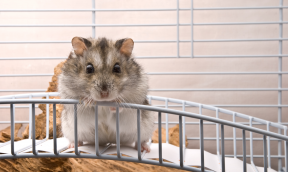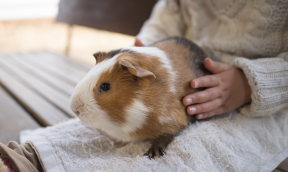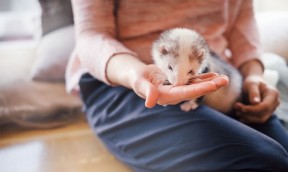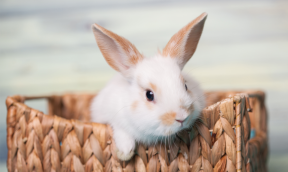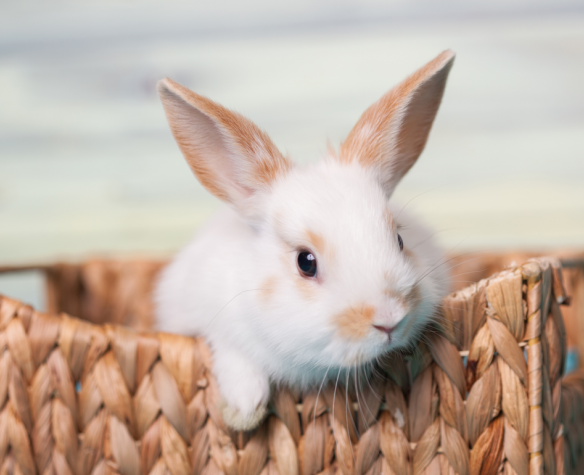
Rabbits
General Information
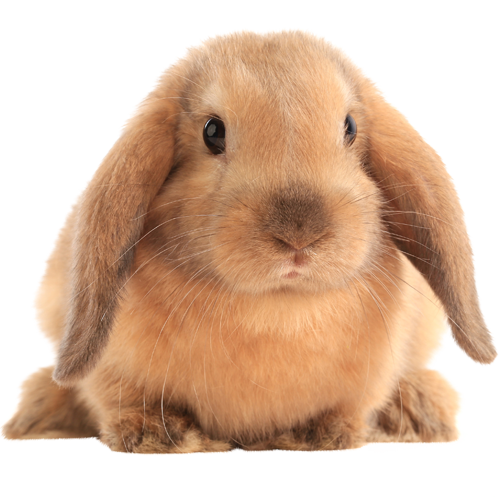
- Classification: Mammal.
- Family: Lagomorpha.
- Diet: Herbivore.
- Adult weight: 900g to 1.5kg, sometimes up to 2kg (Miniature Lop) for miniature breeds
- Sexual maturity: 4-6 months
- Gestation: 30-32 days (4-8 kits, born hairless and blind).
- Weaning: 1-2 months in general
- Life span: approximately 8 years, and sometimes longer.
- Period of activity: Diurnal.
.
Rabbits are unusual in that many different breeds exist, which are highly diverse in size and morphology. For instance, a giant rabbit can weigh up to 8 kg!
The rabbit’s diet
Rabbits are strictly herbivores. Their diet mainly consists of hay, with a small amount of granules (one tablespoon per day), and fresh foods (introduced gradually over a dietary transition period). During dietary transition periods, we recommend using Intestinet to support your rabbit’s digestive function and gastrointestinal flora.
Also ensure your pet has unrestricted access to fresh clean water.
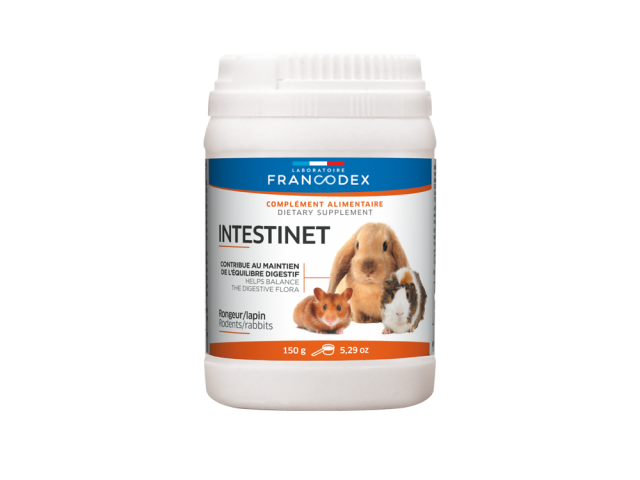
Environment
The cage should have plenty of room, and your rabbit should ideally have access to a larger environment. Their habitat should be away from draughts and in a fairly quiet place but not too far away from their masters. Rabbits are, in fact, sociable animals who enjoy their master’s company and don’t like to be left alone. It is thus preferable to have two rabbits rather than just one. Rabbits should have clean bedding and hiding places which they can also climb on.
During the moulting period, you will need to brush your rabbit regularly to stop them ingesting too much fur. Hair balls can form, which then lead to digestive problems varying in severity, sometimes requiring veterinary advice.
If your rabbit has access to an outdoor area, make sure they are protected from certain diseases (rabbit haemorrhagic disease and myxomatosis) via suitable vaccinations. Contact your veterinary surgeon who will advise you on the best protective measures for your rabbit.

